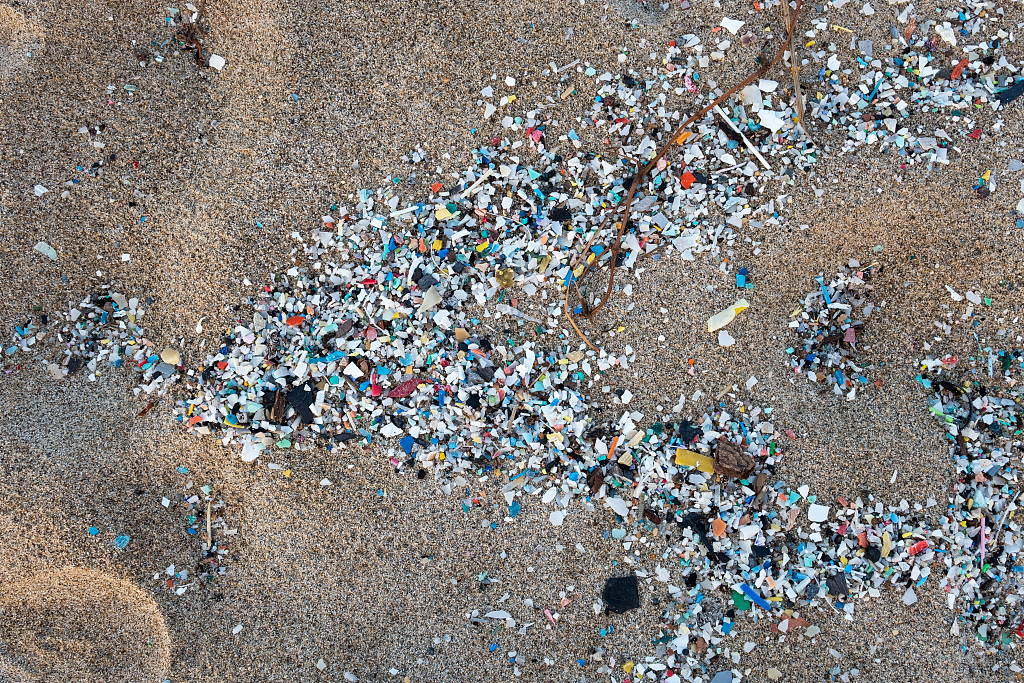Yum! People eat 250g of plastic a year
China Daily | Updated: 2019-06-13 07:48

PARIS-People worldwide could be ingesting five grams of microscopic plastic particles every week, equivalent in weight to a credit card, researchers said on Wednesday.
Coming mostly from tap and especially bottled water, nearly invisible bits of polymer were also found in shellfish, beer and salt, scientists and the University of Newcastle in Australia reported.
The findings, drawn from 52 peer-reviewed studies, are the first to estimate the sheer weight of plastics consumed by individual humans: about 250 grams, or a half-pound, over the course of a year.
Another study calculated that the average citizen in the United States consumes about 45,000 plastics particles smaller than 130 microns annually, while breathing in roughly the same number.
"Not only are plastics polluting our oceans and waterways and killing marine life, it's in all of us," said Marco Lambertini, director general of WWF International, which commissioned the new report.
"If we don't want it in our bodies, we need to stop the millions of tons of plastic that continue leaking into Nature every year," Lambertini said.
In the last two decades, the world has produced as much plastic as during the rest of history, and the industry is set to grow by four percent a year until 2025, according to a new report by Grand View Research.
More than 75 percent of all plastics winds up as waste.
A third of that-some 100 million tonnes-is dumped or leaches into Nature, polluting land, rivers and the sea.
Particles inside sea fish
On current trends, the ocean will contain one metric ton of plastic for every three metric tons of fish by 2025, according to The New Plastics Economy report, published by the Ellen MacArthur Foundation.
Plastic particles have recently been found inside fish in the deepest recesses of the ocean, and blanketing the most pristine snows in the Pyrenees mountains between France and Spain.
The authors of Wednesday's report were up front about the limitations of their research, starting with the fact that little is known about health consequences.
Gaps in data were filled with assumptions and extrapolations that could be challenged, though the estimates, they insisted, were on the conservative side.
They invited other researchers to build on their conclusions.
"Developing a method of transforming counts of microplastic particles into masses will help determine the potential toxicological risks for humans," said co-author Thava Palanisami, a microplastics expert at the University of Newcastle.
Some experts remain sceptical about long-term impacts.
"Based on the evidence that is currently available, I do not think that health effects of microplastics are a major concern," Alastair Grant, a professor of ecology at the University of East Anglia, said.
But that doesn't mean plastics aren't a major problem, he added. "What we do need is political and economic actions to reduce the amounts of plastic being disposed of into the environment and encourage recycling."
The WWF said only hard targets backed by binding national commitments could hope to stem the plastics tide.
Agence France-Presse
























